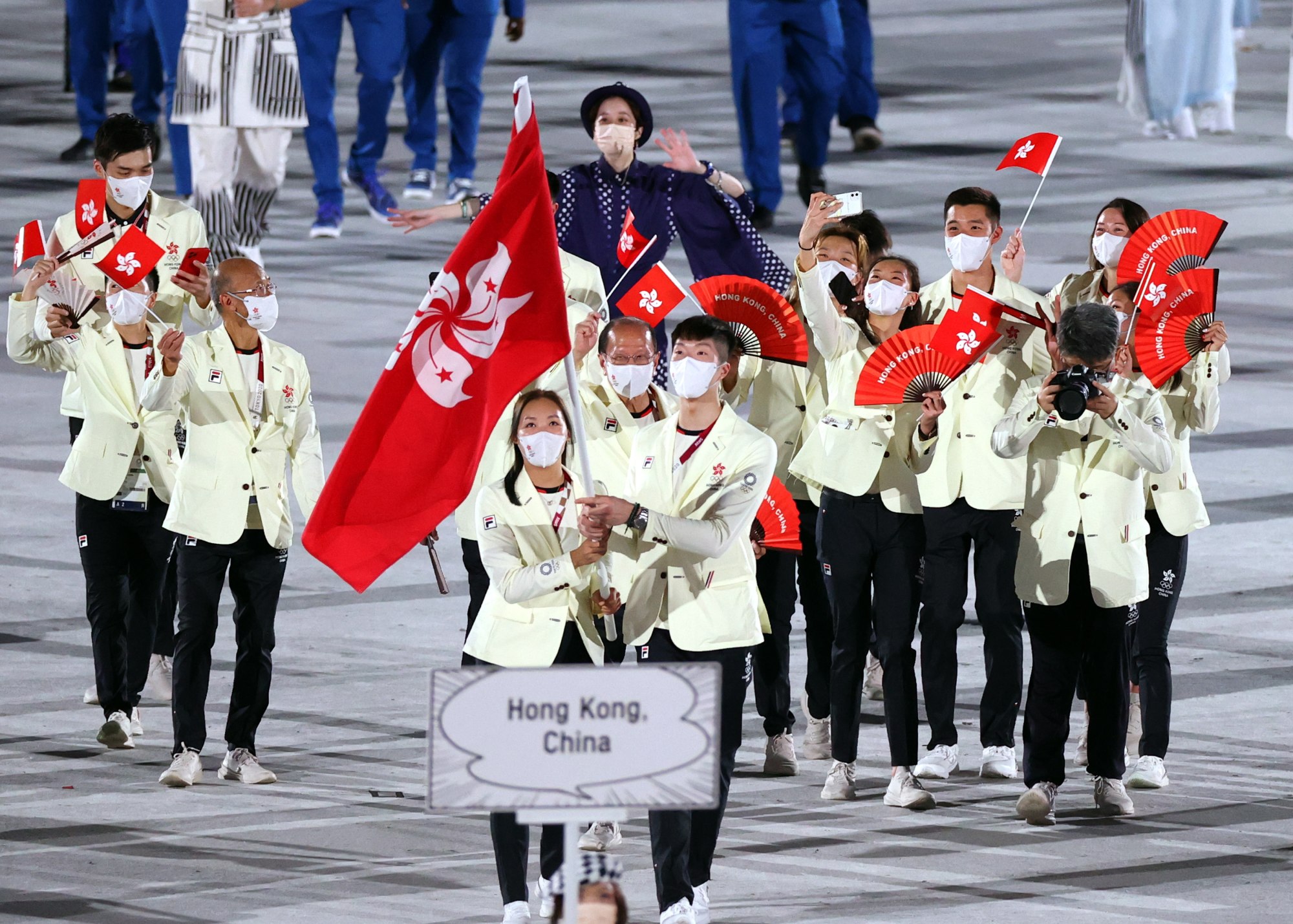
Paris Olympics: Hongkongers can watch coming Games for free after authorities buy broadcasting rights
- Paris Olympics and Paralympics will be shown on three free-to-air TV stations, as well as public broadcaster RTHK, city leader John Lee says
- Chief executive insists price of rights ‘reasonable’ and lower than what government paid to air Tokyo Games in 2021
He insisted the purchase was made out of “special consideration” and the government was not seeking to influence competition among businesses.
“We also considered the social values brought by the previous airing of the Tokyo Olympics – the joy and unity it brought to all residents, as well as the pride [we share] for the athletes’ excellent results.”
Lee described the broadcasting rights fee as “reasonable” and lower than what the government paid for the Tokyo Games in 2021 or what local TV stations forked out for past Olympic events.
The city leader did not disclose the amount paid, citing a confidentiality clause with the International Olympic Committee, but said it would be money well spent as commercial TV stations could earn advertising revenues. Businesses at shopping centres could also benefit from higher foot traffic if they held big-screen live showings, he added.
In 2021, then-leader Carrie Lam Cheng Yuet-ngor bought the broadcasting rights for the Tokyo Olympics. She too declined to disclose the amount paid, but noted the government was spending less than the HK$160 million paid by TVB for the Rio Olympics in 2016, and the HK$120 million spent by Cable TV for the 2012 games in London.
“Upon broadcasting the last Olympics, there have been greater demands and expectations in society because after having a very joyful and pleasant experience of the Tokyo Olympics, I believe there are expectations for the Paris Olympics,” Lee said.

Under an agreement with city authorities, the four local broadcasters must air replays during daytime hours, a move the city leader said would ensure viewers could stay up-to-date with the latest results.
The deal also covered social media content, which Lee did not elaborate on.
The 2028 Olympics will be held in Los Angeles, which will result in a 15-hour time difference for Hong Kong audiences. But Lee said authorities could leave coverage of those Games in the hands of commercial broadcasters.
“We do not intend to change the business competition model in which some commercial organisations would bid for the broadcasting rights of different sports events,” he said. “This time we are making a special consideration [for the Paris Games].”
How seed of Olympic ambition was sown in Siobhán Haughey, Hong Kong athlete
Kenneth Fok Kai-kong, vice-president of the Sports Federation and Olympic Committee of Hong Kong, China, welcomed the government’s move and said he had broached the idea with Lee and other officials on various occasions since last July.
He said local athletes competing abroad needed public support, with the government’s purchasing of broadcasting rights offering the competitors more exposure thanks to local TV stations and a larger audience.
Speaking at a Legislative Council panel meeting on Tuesday, Secretary for Culture, Sports and Tourism Kevin Yeung Yun-hung said the broadcasting requirements for the television stations this time around would be similar to that of the Tokyo Games.
“That includes regulations on the minimal number of hours they must have in Olympics-related content, and that they should show competitions that Hong Kong athletes are participating in.”
The past deal required free-to-air stations to carry a minimum of 900 hours of content, with the five outlets taking part also needing to broadcast every event that included Hong Kong athletes.
Yeung added details of the arrangement were still being discussed and that requests had been made for more content relating to mainland Chinese athletes to be shown, as he noticed people were “very interested in how they were doing as well”.
In separate statements, TVB and i-Cable Communications, which operates Hoy TV, welcomed the government’s decision to purchase the broadcasting rights, with the former saying it highlighted a “commitment to promoting the spirit of sports”.
Viu TV also hailed the announcement while noting the rights would cover streaming and social media content, and that details would be subject to further discussion with authorities.
RTHK said it was looking forward to showing the Games and was planning interactive elements to make the celebration as inclusive as possible.
‘One of a kind’: final whistle blows on Hong Kong Stadium hosting rugby Sevens
Terence Chong Tai-leung, executive director of the Chinese University of Hong Kong’s Lau Chor Tak Institute of Global Economics and Finance, compared the government’s move to make the Games free to view similar to its role in providing other public goods such as infrastructure projects.
Leaving the broadcasting rights up to the private sector risked having companies bid in an “irrational manner”, driving up the cost to consumers and making the Games inaccessible for many residents, he argued.
“From the government point of view, it’s for the sake of society, and for those people who are not able to afford to watch private channels,” he said.
Billy Mak Sui-choi, of Baptist University’s accountancy, economics and finance department, said the traditional media market was struggling and he doubted the city’s private televisions stations had the financial means to purchase the broadcasting rights.
He agreed with Chong that without government intervention, many residents would be left out of the sports celebration.
Airing the Games for free could help unite society and promote national pride, while also encouraging local spending as residents gathered in public to watch the events, Mak argued.
“If you consider the benefit from the society’s point of view … it can outweigh the cost,” he said.


